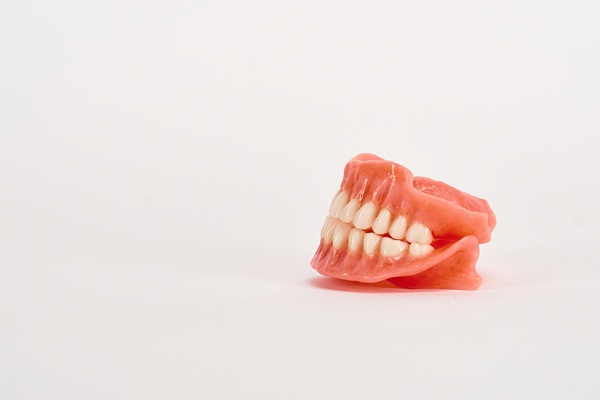How Fluoride Is Used to Prevent Tooth Decay

For the vast majority of people, the risk of tooth decay is inherent to their diet. Carbohydrates and sugars contribute to tooth decay and, left to their own devices, can destroy the enamel, as well as cause decay to run rampant throughout the mouth. Thankfully, a very common and easily utilized solution to counter this process is fluoride. You can find this mineral in toothpaste, mouthwash, and dental treatments.
How does fluoride prevent tooth decay?
When you consume sugary foods or drinks, the combination of sugar and bacteria forms an acid that comes into contact with the enamel of your teeth, which diminishes it. As tooth enamel gets weaker, the tooth becomes less protected against cavities. If tooth enamel gets too weak, it is no longer protected from acid, which can cause cavities to form. When cavities are not treated, they wreak havoc on a person's oral health.
To counter this, fluoride can be used. When combined with the natural saliva in your mouth, fluoride can rebuild enamel and strengthen protection against cavities by making enamel more resistant to acid and preventing bacteria from creating it. It can also halt early tooth decay by rebuilding the minerals necessary to protect teeth.
While many communities add fluoride to drinking water, the amount of fluoride is not sufficient by itself to prevent cavities. While fluoride can naturally be found in the environment and is often added to tap water, it is also an ingredient in many kinds of toothpaste and some mouth rinses. Fluoride is found in non-dental applications, such as in cleaning agents, pesticides, medical imaging devices, and some Teflon or steel products.
Side effects attributed to fluoride
Even though it occurs naturally in nature, there are some concerns that large doses could lead to unpleasant side effects. There is a maximum allowable amount of fluoride that can be added to drinking water, and this is regulated by the Environmental Protection Agency. This standard helps prevent unnecessary damage or overconsumption.
Dental fluorosis is likely to occur in children under the age of eight, as this condition affects teeth that are forming beneath the gums. Too much fluoride will change the appearance of the teeth. It may appear as frosty edged around the teeth, chalk-like lines, white spots, or scattered white flecks.
Skeletal fluorosis is similar but the damage occurs on the bones rather than the teeth. Some of the earliest signs include stiffness and joint pain, but as the condition progresses, the bone structure becomes altered and the ligaments become calcified.
What fluoride treatments are available?
Aside from using dental products that have fluoride in them, some additional treatments can be used with fluoride. One such treatment is fluoride gel, which is applied via a tray that fits the shape of your mouth. After putting the gel in the tray and attaching it to your teeth, wait about five minutes for the fluoride to set. When five minutes have passed, remove the tray and spit out any residual fluoride that remains in your mouth. It is important not to use water to rinse, as this will interfere with the process. You also should not eat or drink anything for at least 30 minutes after use.
Another treatment to increase protection against cavities is fluoride varnish. This treatment is exceptionally simple to perform, with dentists needing only to apply the varnish to teeth. Generally used early in life, fluoride varnish is an alternative to fluoride gel used in trays and can produce up to a 38% reduction in tooth decay according to government officials. If your dentist believes it necessary, fluoride varnish can safely be used up to four times per year.
Only tap water contains fluoride. Most bottled water does not. If it does, this is usually indicated on the label. If you are following proper dental hygiene habits and seeing a dentist regularly, you may not need to supplement your fluoride intake with special water. If you are concerned that you could be getting too much fluoride, you can use a fluoride filter or drink bottled water.
Conclusion
When combined with the calcium and phosphate that occurs naturally in your mouth, fluoride becomes an effective defense against the acid that results from bacteria combined with carbohydrates. Fluoride is completely safe and highly versatile and can even be added to baby formula. Especially necessary for children, it is a good idea to combine tap water and fluoride toothpaste for maximum protection against cavities.
Request an appointment here: https://www.northside-dentalcare.com or call Northside Dental Care, PC at 9782067077 for an appointment in our Peabody office.
Check out what others are saying about our dental services on Yelp: Tooth Decay in Peabody, MA.
Recent Posts
Seeing a general dentist for regular checkups should be part of your dental care routine. This dental professional can help maintain and even improve your teeth and gum health. Asking the right questions can help you know more about proper oral care. Below are some of the questions you can ask your general dentist during…
Your general dentist is here to provide some information about how to best take care of your teeth. Dental health and hygiene are essential to the overall health and wellness of your body. Without healthy teeth and gums, you will be unable to take in the nutrients and proteins necessary for your body to thrive…
Every person should always schedule and keep routine appointments with their general dentist every six months. These visits are very important in determining the overall health of your teeth and gums. It is at your routine visits that your dentist is able to find and begin treating any type of oral health issue. You want…
A broken tooth is a common dental issue that fills most people with dread, especially when the crack is near the front of the mouth. Front teeth fractures are quite common among children, teenagers, and young adults. Fortunately, a dentist can recommend various repair or replacement options for damaged front teeth to help patients resume…


